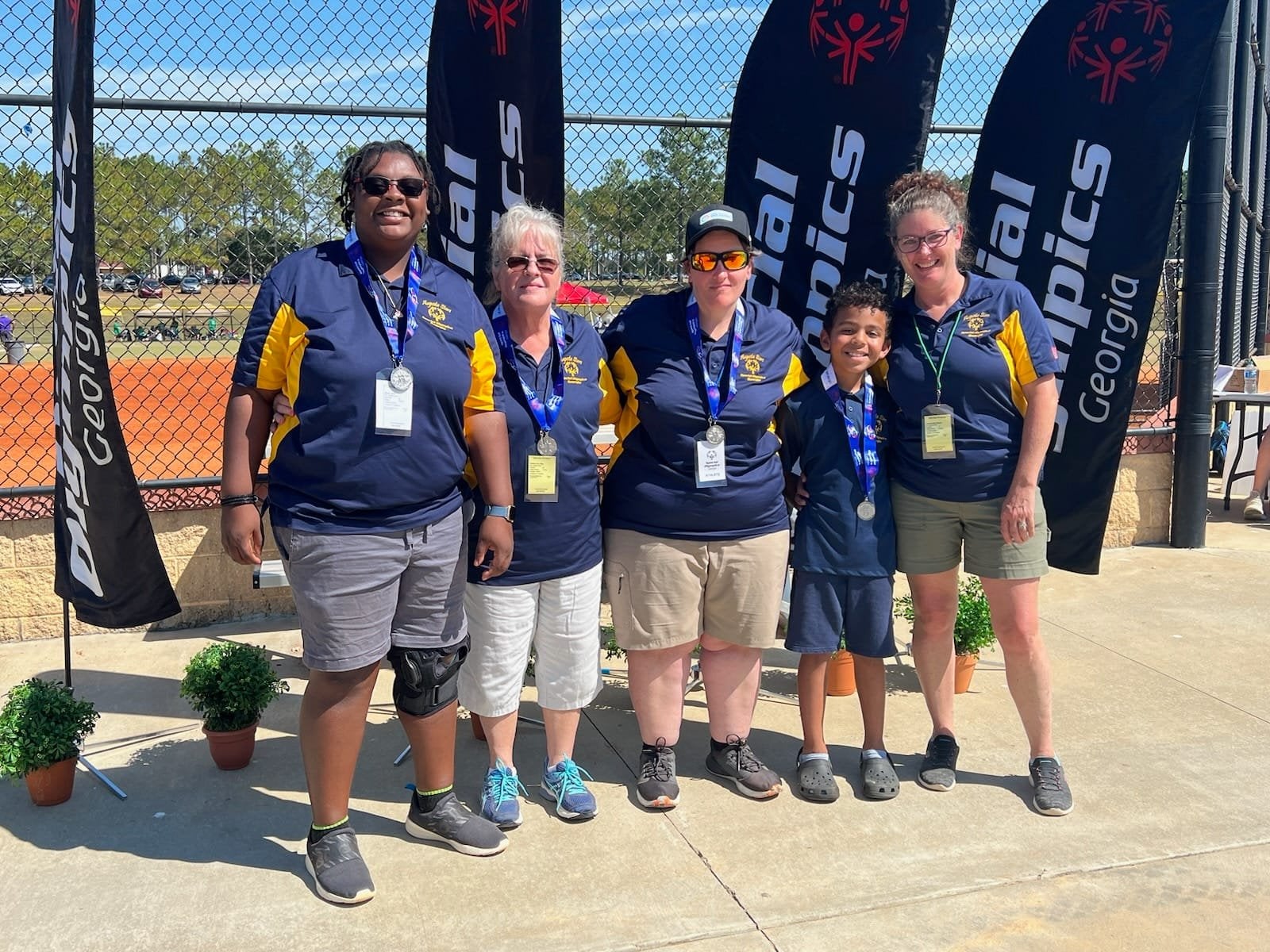For several in the community, the Augusta Stars – a special olympics organization that trains athletes – has provided a safe space and motivation for those who live with special needs.
Recently, on Jan. 27, 68 local athletes, coaches and parents from the Augusta Stars traveled to Marietta, Ga to compete in the Special Olympics Georgia Winter Games.
With leagues in kayaking, volleyball, swimming, golf, tennis, bocce, bowling and many other sports, there is a variety of activities to choose from for those wanting to get involved.
After almost three months of practice and being divided into leagues based on age, sex and score averages, the Augusta Stars competed in bowling, and brought home various medals – including: 13 gold, 16 silver, 11 bronze and 5 fourth place ribbons.
Competitors varied from age 8 to mid-60s, and the top averaged score was 151, while the highest recorded total was an impressive 178.
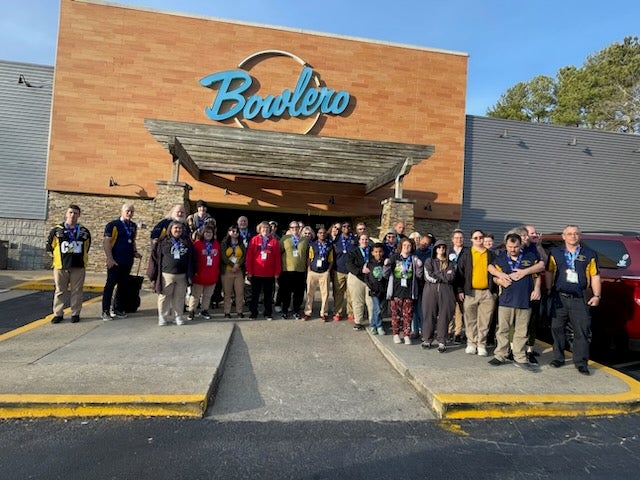
First established in 1995 and primarily made up of adults who are at least 22-years-old, the group has shown children and adults what it means to overcome a disability.
Raven Allen and Doyle Campbell, latest gold medal winners and experienced special olympics athletes, said competing changed their entire life.
“It means a lot to me. It opened me up a lot, and made me try new things,” said Allen, who will be 29 soon. “I compete out there just to have fun, and just to be around new people. Sometimes, I get a little competitive, but not often. I’m appreciative of anything I get.”
But before she was able to compete, Allen said special olympics pushed her to exit a personal “safe bubble” when she was in high school, and quit isolating herself from the world.
“I feel like I got forced out, but it was pretty awesome though,” she said. “It’s a fun thing to do, and it’s kind of part of my life now … I highly recommend it. You might be nervous at first because it’s a lot of people, but once you keep going it becomes a family – and that’s the best part of it.”
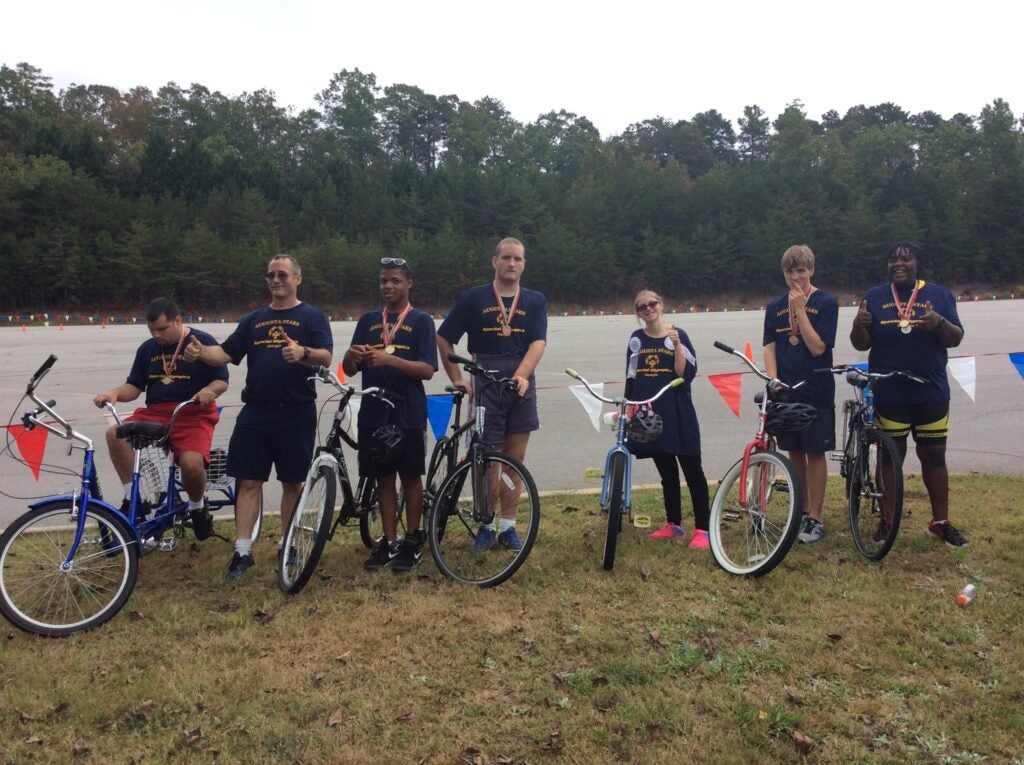
Campbell, who has been in special olympics for over 40 years, said competing boosted his confidence in unimaginable ways, and even changed his personality for the better.
“At first I was shy, and now I’m very bubbly and outgoing,” he said. “Once you keep coming, you make new friends. It brightens the life of people.”
Public Relations Manager and coach Jeff Keating, said special olympics acted as a gateway to teach his children how to overcome their fears. With two autistic sons and a nephew, one of whom was terrified of learning how to swim, Keating shared that overtime his child was able to conquer his phobia, and eventually went on to compete as well.
“I participate not only for my sons, but also to widen the community and bring individuals in,” said Keating. “It’s a great thing to build skills, push you out of your bubble and it challenges you to grow.”
For those who grow up with disabilities, Campbell and Allen said they are often told by “normal people” what they are not capable of. Allen said
“I’ve overcome a lot of adversity since I’ve been in special olympics. I’ve had people tell me that I couldn’t do things like tennis, golf, all that other stuff,” said Campbell. “People tell me ‘people in special olympics can’t do this.’”
However, surprising others by overcoming those underwhelming expectations only makes the victory that much sweeter for athletes.
“Oh man it feels good … it shows people that even those with disabilities are able to do the exact same things as a normal person,” said Allen. “We might be slower, but we are still able to do it, and I think that’s a big part.”
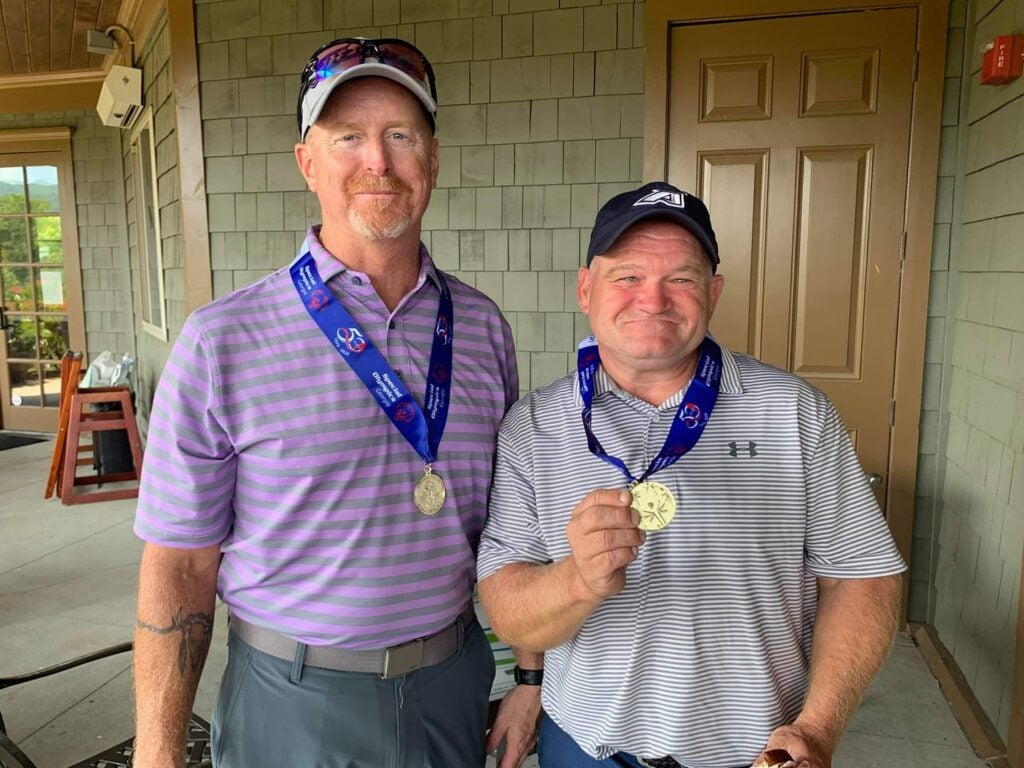
Now, despite his disability, Campbell can play and compete in tennis and golf with fully able-bodied people, and even enjoys shocking them with his skills.
“I’ve heard people say ‘people in special olympics can’t play golf.’ Well I got out there and I showed them,” he said. “It makes you realize you shouldn’t judge a book by its cover.”
Allen said she also had a similar experience with her kayaking and bocce ball skills.
“Growing up, especially with a disability, you get so many people that tell you ‘you can’t do it,’ and that’s why I’m happy that I joined the special olympics,” she said. “It kind of proves them wrong. It proves to them like we can do it, and we can win.”
Competing has even brought the two athletes unique, and once-in-a-lifetime opportunities. In the past, Campbell said he would never forget traveling to Connecticut in 1995, where he played with pro tennis player Monica Seles.
“That was exciting, and it was my dream come true to hit with Monica Seles,” he said.
For Allen she will fly for the first time outside the U.S. to Berlin, Germany to compete in the kayaking category for the 2023 Special Olympics World Games in June.
“I am a little nervous, but this is a big adventure for me. It’s way out of my comfort zone, but I’m ready for the challenge … the best part is surprising yourself,” said Allen. “Like my mom always said, ‘if you give up so quickly, you won’t succeed.’ My mom always said, ‘sometimes you just have to push yourself.’”
Allen then recounted a memory from a few years ago, where she played bocce ball against pro special olympic athletes, who had competed in the world games three times, and – to her amazement – she won first place in the competition.
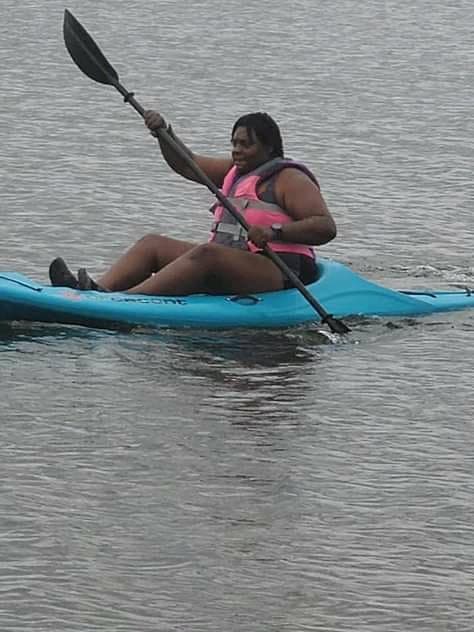
But had they never joined special olympics and began competing, both she and Campbell said they would be severely unhappy today.
“I wouldn’t even come out of my house,” said Campbell as Allen vehemently agreed. “My self-esteem wouldn’t be the same. When I’m on the golf course, everybody says ‘wow.’”
Without special olympics, Allen said she would have missed out on so much. She would have never experienced the joy of surprising herself with new high scores and record times.
“When your anxiety kicks in, it kind of gets overwhelming,” she said. “But when you come out with a way better score, you’re like ‘I did that? Woah.’”
As a coach and a parent, Keating said he has seen first hand how competing has given those with special needs a purpose, and has even motivated them to improve their physicality overtime with training.
“It gives them something to do, and look forward to throughout the year,” he said.
To find out more about the Augusta Stars or to join, find them on Facebook at https://www.facebook.com/groups/209103989150271/
Liz Wright is a staff writer covering education, lifestyle and general assignments for The Augusta Press. Reach her at liz@theaugustapress.com

